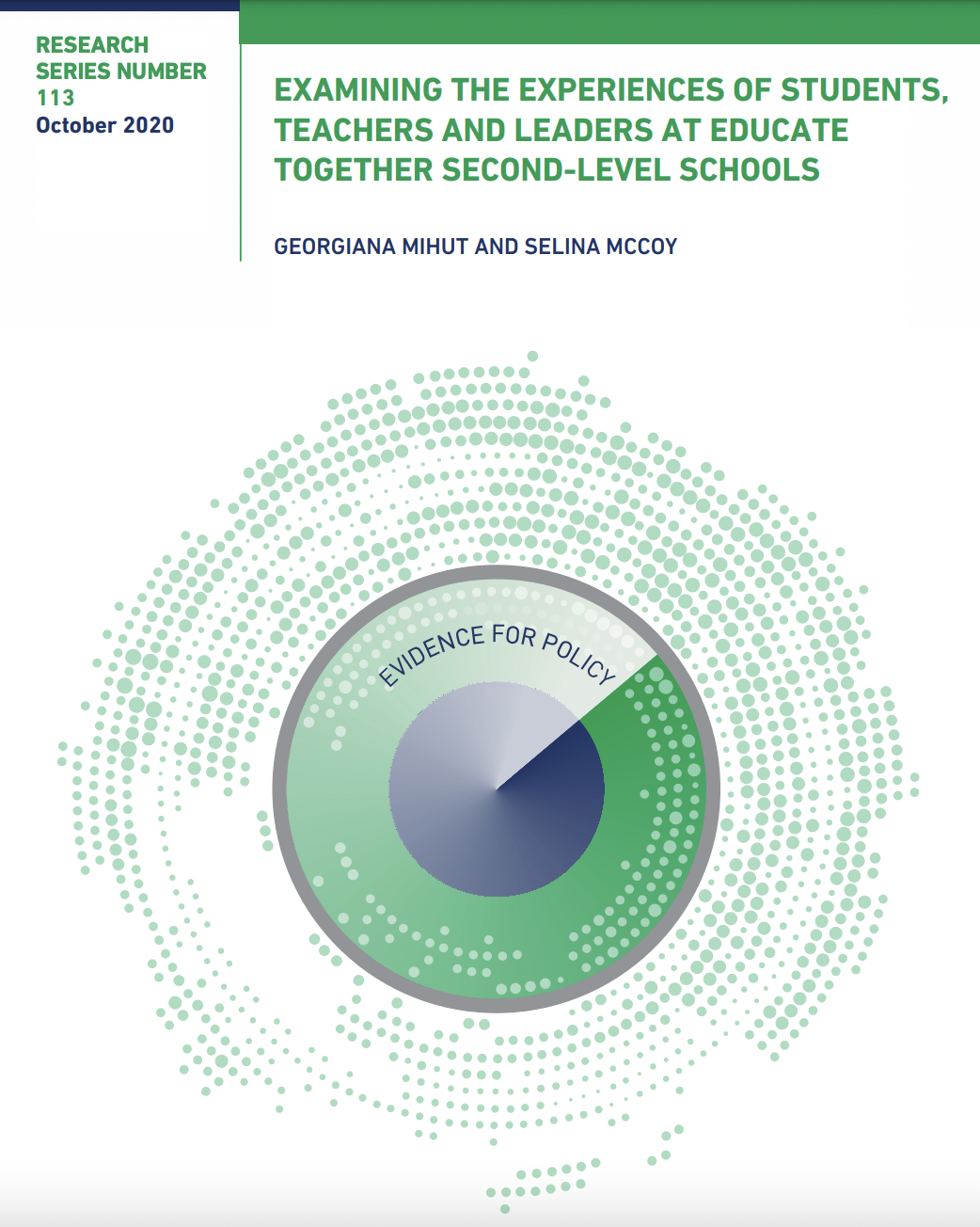 Educate Together second-level schools (ETSS) are relatively new in the second-level school sector. Despite this they have successfully embedded the core principles of Educate Together’s equality-based ethos and have demonstrated strong student-centred, collaborative and active learning approaches, a new ESRI study has shown.
Educate Together second-level schools (ETSS) are relatively new in the second-level school sector. Despite this they have successfully embedded the core principles of Educate Together’s equality-based ethos and have demonstrated strong student-centred, collaborative and active learning approaches, a new ESRI study has shown.
The report is based on a mixed methods research study conducted at 11 ETSS late in 2019, prior to the COVID-19 school closures. The research involved students, teachers, parents, school leaders and other stakeholders.
Main findings:
- Educate Together schools are more diverse on average than the typical Irish second-level school. This diversity is reflective of the increasingly diverse nature of Irish society. The research found that alongside this diversity, students expressed strong feelings of inclusivity and belonging within their schools, and very high self-report rate[s] of respecting people from other cultures.
- The research found a strong culture of respect at the core of relationships between students and teachers, supported by the use of restorative practices to behaviour and discipline.
- Teaching practices at ETSS are in strong alignment with the progressive approaches at the core of the new junior cycle. Within the boundaries of the national curriculum, teachers provide student-centred and differentiated education while making extensive use of active learning methodologies
- Students reported that the Ethical Education curriculum, a key component of the Educate Together model, was about learning to make good decisions and being a better person. Across schools and school years, students reported that learning about ethics mattered for their lives, in and out of school.
- Ultimately the research found that Educate Together second-level schools are successfully delivering the model of education envisioned in the organisation’s 2009 Blueprint for Second Level Schools, including a focus on positive relationships, promotion of active and responsible citizenship, student-centred and active learning approaches. The research evidences that this is taking place to a high standard, bringing the Blueprint to a lived reality experienced by thousands of students.
- A key finding related to the ‘starter school’ profile of these schools. Many of the schools included in the study are in temporary and, at times, unsuitable accommodation. This creates high pressures on providing sufficient resources to support students with additional needs, and sometimes constrained schools in offering full-time contracts to teachers. Despite these challenges, students described school environments where their wellbeing was strongly supported. The schools have also proved able to attract teachers and school leaders committed to the Educate Together ethos, and to creating school communities in which very diverse students say they belong.
Policy implications
- The findings of the report suggest that the inclusive ethos of Educate Together second-level schools creates a welcoming environment for all students, regardless of background or need.
- Department of Education policy measures should better monitor and address the disproportionate level of student need at some schools and ensure that starter schools receive the resources they need to ensure students with additional needs are fully supported.
- Starter schools can face significant delays in securing appropriate accommodation for their students. Interim arrangements were not satisfactory at some schools and at times worsened the student experience. The findings of the report support the need for further examination of planning processes to ensure the timely provision of suitable accommodation for new schools.
Commenting on the report, author Georgiana Mihut stated:
‘A strong culture of respecting diversity was evident at the 11 Educate Together second-level schools we visited as part of this study. As the sector continues to grow, it is well positioned to serve as an example of how schools can increase their democratic practices and better support the increasingly diverse population of Ireland’
Commenting on the report, author Selina McCoy stated:
‘Educate Together second-level schools have attracted dedicated and progressive school leaders and staff. However, the demands placed on school leaders, particularly in newly established schools, are considerable and the evidence points to the importance of administrative, mentoring and other supports, as well as the efficient and timely progression of school building planning’.
Welcoming the report, Educate Together said that this research provides valuable information about the growing network of Educate Together second-level schools, which have proved popular with parents and students wherever they have opened.
Speaking about the research, CEO Dr Emer Nowlan said:
‘We want to commend our school communities on the progressive and student-centred practices identified in this research, and the creative ways they are bringing learning to life and making it relevant for young people. It is heartening to see the quality of student-teacher relationships in particular, and students’ strong sense of belonging, as we know that these are crucial to ensuring that every student reaches their full academic and social potential. The research also provides stark evidence of the challenges faced by new schools in temporary accommodation and highlights the need for significant improvements in planning systems and resources for developing schools of all types.’
